The Pacific Northwest Canola Association
Who We Are
The Pacific Northwest Canola Association is a team of canola producers, crop consultants, crop input suppliers, and processors who are passionate about educating other growers, crop consultants, agricultural agencies, and the general public about the benefits of canola. We represent the Pacific Northwest region at U.S. Canola Association meetings and advocate for canola and the canola industry.
Our Mission
The mission of the Pacific Northwest Canola Association to grow the canola industry in the Pacific Northwest (ID, MT, OR, and WA) through education, advocacy, and marketing.
"We have never been disappointed with canola in our rotation"
Our Goals
In an area long dominated by cereal rotations, a steady dose of research, field tours, and educational workshops during the last 10 years is driving a momentum shift towards acceptance of canola as a viable rotation crop. The primary goals of the Pacific Northwest Canola Association are to continue the momentum by:
- Strengthening ties between producers, industry, universities, and governmental agencies in the four states (ID, MT, OR, WA),
- Bringing in additional funding for canola research and education,
- Lobbying for policies and legislation at the state and regional levels, and
- Providing a voice in Washington D.C. on behalf of Pacific Northwest canola growers.
History of Canola and Canola Associations in the Pacific Northwest
Canola has come a long way since its simple beginnings.
Plant breeding, initiated by Dr. Baldur R. Stefansson and Dr. Keith Downey in Canada in the late 1950s, was undertaken to change the nutritional make-up of rapeseed. In the 1970s, canola was created through traditional plant cross-breeding by genetically reducing two components found in rapeseed seeds: glucosinolates and erucic acid. The newly developed seed was renamed “canola” – a combination of “Canada Oil Low Acid,” and was registered in Canada in 1979. By definition, if a seed is labeled “canola” it has to have less than 30 micromoles of total glucosinolates and less than 2% of erucic acid in the seed oil. General Agreement on Tariffs and Trade (GATT) status for canola in the U.S. was attained in 1985, and the name ‘canola’ finally could be used for the 1988 harvest.
Industrial rapeseed has been produced in the Pacific Northwest (PNW) for more than 100 years.
Canola production was minimal until after 1988 when a company named Intermountain Canola promoted the crop and offered contracts to growers beginning in 1991. By the mid-1990s, there was enough interest to create a PNW Rapeseed and Canola Association. The name was changed shortly thereafter to PNW Oilseed Association to include mustard growers. By 2001, however, the association dissolved as Intermountain canola varieties underperformed, many growers lost money on contracts, and the interest level in canola production dropped. Intermountain pulled out of the Pacific Northwest and local markets were pretty much nonexistent. Most of the canola being produced in the PNW was delivered to a processing facility in Lethbridge, Alberta or shipped whole-seed to Japan. The idea of a canola association resurfaced in the early 2010s with a couple of processing facilities operating in Washington, but again, did not materialize despite canola acreage steadily increasing across the region.
In 2012, the Willamette Valley Oilseed Producers Association was formed in western Oregon.
This association was formed to support and advocate for expanded canola acreage in a region that is known for vegetable and grass seed production. Grass seed producers welcome canola as a broadleaf crop they can grow to control the grassy weeds that are often a problem in their grass production fields. However, vegetable seed producers are concerned that canola will cross-pollinate with other Brassica crops and potentially spread diseases. Read the latest on this controversy.
Fast forward to 2017.
In June 2017, 30 growers, industry and agency representatives, and university faculty met in Richland, WA to discuss the feasibility of forming a PNW canola association. The positive energy was enough to know the was timing right to get an association off the ground again. The Pacific Northwest Canola Association (PNWCA) was incorporated in July 2017. Since then, a producer board of directors was developed with representation from all four states, and an executive director was hired. Presentations about the PNWCA continue at meetings and field tours throughout the region, and membership is steadily growing.

